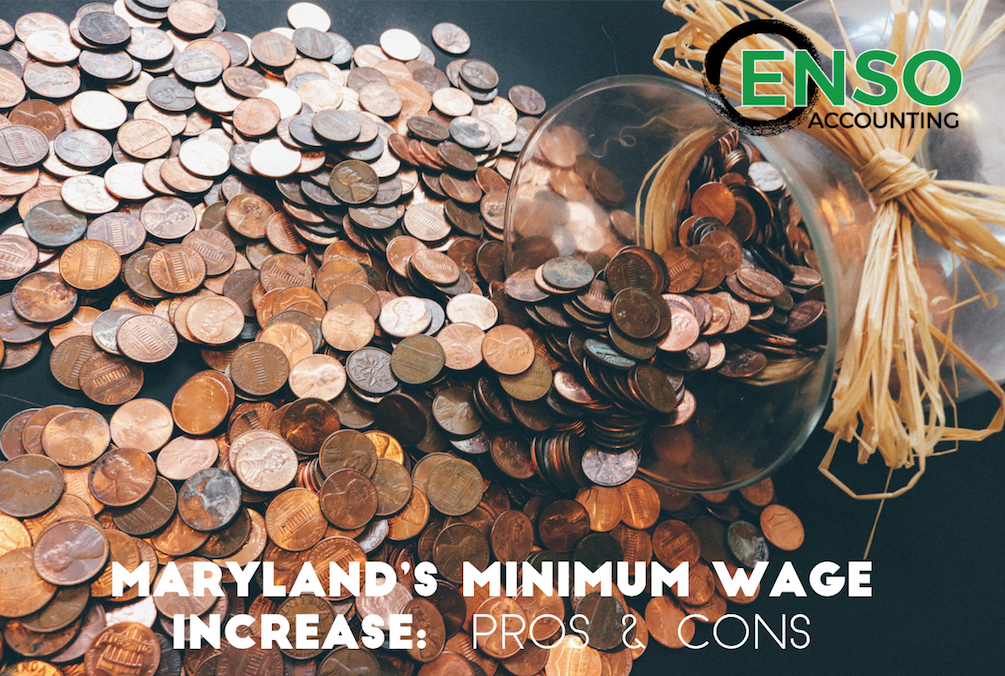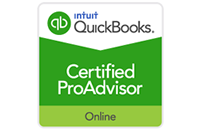Many people are talking about the minimum wages these days—especially here in Maryland. Starting July 1st, the last of the proposed wage increases went into place, taking our lowest paid workers to an hourly income of $10.10. This now puts our state in the top 10 ranking of highest minimum wage rates in the country! But what does this mean for small business owners? Today, we’ll look at some pros and cons of this latest legislative change.
Pro #1: Workers Can Now Afford More
As the years go by, basic necessities continue to grow more and more expensive. While the cost of living in Maryland isn’t quite as high as our neighbors’ in D.C., it’s pretty close. Making the previous minimum wage of $7.25 unsustainable for many residents. You can find a great illustration here, which shows how far $100 stretches, depending on which state you live/work in.
Either way, this increase was set in motion back in 2014. It’s the last of the proposed increases, separated by small increments—with $8.00/hour in 2015, $8.25 in July of that same year, $8.75 in July 2016, and $9.25 in 2017. The rationale behind the shift that if goods, gas, housing, etc. are all increasing in price, then so should the minimum wage. So, those who live in our state can actively participate in our economy, leading to more growth all-around.
Con #1: Small Business Owners’ Expenses Just Increased, Too
Now that employers are required to pay more each month, certain businesses will feel the effects more. Typically, it’s smaller companies with reduced budgets that find it difficult to keep up with rapid increases like this. If their revenues can’t absorb these increases, then the owners may be forced to make difficult decisions.
They make have to reduce hours overall or lay off some of their workforce. It could even result in a reduction of benefits, should the company need to lower expenses elsewhere. However, this predominantly affects businesses that employee a minimum wage workforce. An IT consulting firm, for example, whose average income is well above this threshold would see little difference initially. If the minimum wage increase creates a ripple effect to higher-tier positions, well, that’s another matter.
Pro #2: Raising the Minimum Wage Boosts Worker Productivity
Studies have shown that workers who are paid more feel more valued! They’re likely to have better morale and, thus, work harder for their employees. Plus, it can reduce employee retention issues like high turnover and/or absenteeism.
At this point, it’s been well-documented that the cost of losing a good employee is far higher than the price of keeping him/her. With all of the training and loss of productivity, it can easily cost one-third of their annual salary to find a replacement—every time you’re forced to hire a new one. While that’s obviously a lower cost for low-wage employees, if you’re struggling with high turnover, you may be losing money unnecessarily. In this case, it may take more than a wage increase to fix your worker productivity, but it’s a good place to start. For more information, check out this resource for common HR problems.
Con #2: Increased Outsourcing
We’re already dealing with this matter more frequently. Just think about your last experience with a large cell phone company or cable provider—how did that go? When having a dedicated staff becomes too costly for a company, they try to reduce their labor expenses by outsourcing.
In some cases, this involves sending the jobs overseas where lower minimum wage laws and favorable exchange rates result in drastically lower costs for employers. Unfortunately, this isn’t an option for many labor-intensive fields or basic positions that require in-person performance. So, rather than keeping a dedicated person or department in-house, some companies will hire a part-time consultant to meet their needs. Again, this is more practical for certain positions—such as HR or accounting—and won’t fully replace your workforce. But it does often send valuable jobs and income outside of the local economy.
While this list could go on and on, we just wanted to touch some of the biggest issues facing Maryland small business owners today. With further discussions in the works on driving our minimum wage up to $15.00 per hour, these matters will only become more relevant in the near future. If you’re concerned how these will affect your position, come talk to a professional at ENSO Accounting today! We offer much more than tax advice, and we’d be happy to help you plan for whatever legislation will bring your way.




